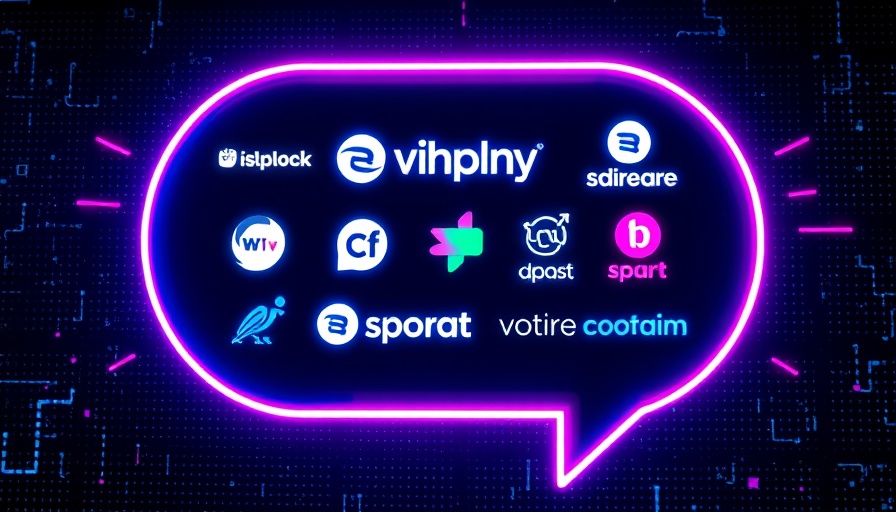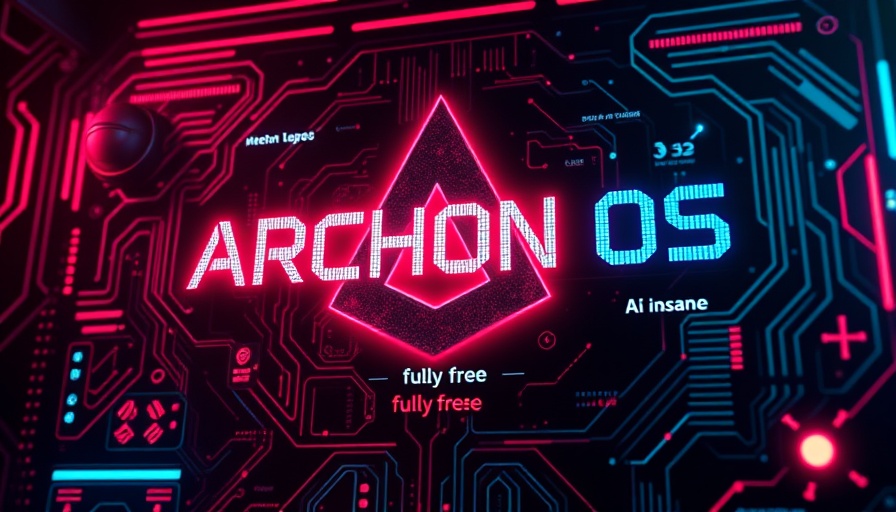
Understanding Temporary Chat: What Is It?
Temporary Chat is an innovative feature found in several leading AI platforms such as Google Gemini, ChatGPT, Perplexity, and Microsoft Copilot. This feature allows users to engage in private, short-lived interactions tailored to obtaining quick answers without leaving a digital trace. For many users in tech-savvy environments, this means a significant shift towards privacy and efficiency.
The Privacy Advantage of Temporary Chats
In today's digital age, privacy concerns are paramount. Temporary Chats ensure that sensitive inquiries can be made without the worry of being stored for future reference. Gemini’s sessions, for example, disappear after 72 hours and aren't used for personalization or model training. Similarly, ChatGPT promises that conversations are deleted after 30 days, offering users peace of mind when discussing personal or speculative topics.
Reducing Digital Clutter: A Path to Better Focus
One of the consistent benefits across platforms is the reduction of digital clutter. Users often feel overwhelmed by a backlog of saved conversations. Temporary Chat eliminates this issue by ensuring these interactions don't pile up. For instance, Perplexity operates in an incognito mode which saves no user queries, thereby keeping the workspace clean and easy to manage.
Rapid Responses for Everyday Tasks
When it comes to productivity, Temporary Chat excels by providing quick responses to everyday queries. Gemini and ChatGPT deliver answers promptly, avoiding the long waits associated with traditional sessions. This is particularly beneficial for busy professionals needing swift assistance without the hassle of tracking chat histories.
Fostering Smart Interactions Without Personalization
Temporary chats alter how users can engage with AI by ensuring interactions remain anonymous when desired. ChatGPT, for example, offers flexible memory options that give users control over what information is remembered or forgotten, while Gemini maintains a context-free dialogue approach. This fosters an environment where users can explore more freely without the fear of their data being used against them.
Utilizing Temporary Chat for Group Work
In collaborative settings, Microsoft Copilot shines by integrating Temporary Chat into its suite of tools. Features such as meeting transcripts or document summaries can be executed in a session-only format, which decreases the risk of saving sensitive information prematurely. The ability to run tasks in temporary modes not only enhances productivity but also ensures data privacy.
Building Trust Through Transparency
Trust is vital in our interactions with technology, and AI platforms are stepping up by being transparent about Temporary Chat practices. Outlining how user data is managed fosters confidence. Platforms like Gemini and ChatGPT clearly explain their processes, ensuring that users feel safe utilizing these tools in their daily lives.
Actionable Tips for Integrating Temporary Chat into Your Workflow
To leverage Temporary Chat effectively, it’s crucial for users to familiarize themselves with the privacy settings of their chosen AI platform. Before starting a session, consider what you wish to discuss and how comfortable you feel about privacy. By utilizing incognito modes and temporary settings, users can maximize their benefits while minimizing risks.
Conclusion: Embracing the New Era of AI Communication
Integrating Temporary Chat into daily routines can enhance user control over digital interactions, allowing for a smoother and more private experience. As these features continue to evolve, embracing them can significantly improve efficiency and security in our increasingly digital world. Explore these options and adjust your AI engagements for optimal performance while protecting your privacy.
 Add Row
Add Row  Add
Add 




Write A Comment